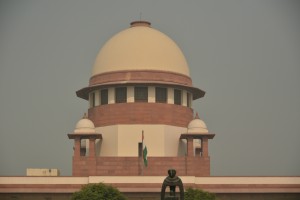Supreme Court: In the Cauvery Water Dispute where the issue relating to referring the matter to the Tribunal was concerned, the 3-judge bench of Dipak Misra, Amitava Roy and A.M. Khanwilkar, JJ said that once a water dispute, as defined under Article 262(1) read with provisions of the Inter-State River Water Disputes Act, 1956 is adjudicated by the tribunal, it loses the nature of dispute. A person aggrieved can always have his remedy invoking the jurisdiction under Article 136 of the Constitution of India. The Court, hence, held that the contention of the Union of India with regard to the maintainability of the appeal by special leave under Article 136 of the Constitution of India stands repelled.
The Court explained that the Section 11 of the 1956 Act bars the jurisdiction of the courts and needless to say, that is in consonance with the language employed in Article 262 of the Constitution. The Founding Fathers had not conferred the power on this Court to entertain an original suit or complaint and that is luminescent from the language employed in Article 131 of the Constitution and from the series of pronouncements of this Court. It was held that Section 6 of 1956 Act cannot be interpreted in an absolute mechanical manner and the words “same force as on order or decision” cannot be treated as a decree for the purpose for excluding the jurisdiction of this Court. The language employed in Section 6(2) of 1956 Act suggests that the decision of the tribunal shall have the same force as the order or decree of this Court. There is a distinction between having the same force as an order or decree of this Court and passing of a decree by this Court after due adjudication. The Parliament has intentionally used the words from which it can be construed that a legal fiction is meant to serve the purpose for which the fiction has been created and not intended to travel beyond it. The purpose is to have the binding effect of the tribunal’s award and the effectiveness of enforceability. Thus, it has to be narrowly construed regard being had to the purpose it is meant to serve.
Stating that a provision should not be interpreted to give a different colour which has a technical design rather than serving the object of the legislation, the Court said that the exposition of the principles of law relating to fiction, the intendment of the legislature and the ultimate purpose and effect of the provision called for repelling the submissions raised on behalf of the Union of India that Section 6(2) bars the jurisdiction conferred on this Court under Article 136. [State of Karnataka v. State of Tamil Nadu, 2016 SCC OnLine SC 1450, decided on 09.12.2016]

